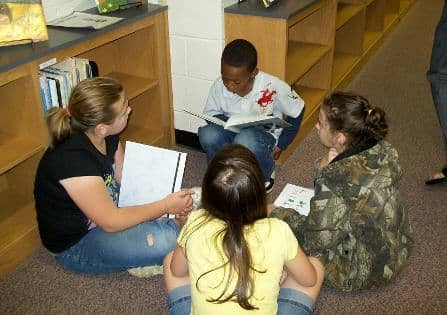As parents it’s hard to keep up with our kids’ learning schedules. By now, we have got the hang of school, but most parents still don’t really know what their kids are meant to know by the end of each grade. When are they supposed to know their math facts? By what age should they be able to read fluently and completely comprehend stories and passages? Are they on track with their grade-level learning or do we need to help them catch up?
These are all questions we cover in our series on what kids learn in each grade. Today, we’re moving onto grade 3.

Some Background
In grade 3, kids will start to put their concrete learning into practice as they tackle more complicated and abstract assignments. Applying the skills they learned in grades 1 and 2, students now start working more independently rather than working with explicit instructions from their teachers.
This year, they’ll focus more on the past, present and future. Reading, social studies and science will follow events over time.
Reading
In third grade kids take their basic reading skills to the next level. They’ll by now have learned how to decipher words they don’t understand, by context clues or looking at pictures. Your third grader will now delve into chapter books (if they haven’t already don so) and fact books. They are making steps towards learning to read, to reading to learn. They’ll be asked to discuss book stories and facts in smaller groups, and to summarize and present book reports. Teachers will introduce different kinds of writing, from newspapers and magazines, to web sites, to fiction and fact books.
Writing
In writing, your child will be expected to prepare more complex writing assignments and, in doing so, will learn organizational methods, such as creating maps, webs and Venn diagrams to organize their thoughts and use as guides when putting those thoughts in writing. They’ll be asked to keep a regular journal, write book reports, creative fiction and fact-based pieces. This year there is a greater focus on grammar and students will be expected to revise, edit and proofread their work.
Math
Moving on from adding and subtracting two- and three-digit numbers, regrouping and measurement in grade 2 math, third graders focus on more advanced multiplication and division, larger whole numbers (from 1,000 up) patterns that involve those numbers, geometry and probability. By the end of grade 3, students will have learned the skill of mental math and to work out problems on paper rather than with physical objects, to work with fraction, to estimate, to interpret graphs and to predict probability and outcomes.
Science
In science, kids move onto more complicated topics, looking at how natural systems relate – such as a solar system – weather concepts, and living system. They’ll learn about solids, liquids and gases, and the behaviors of sound and light. They’ll have hands-on experiences as they observe, measure and experiment with systems, sounds, habitats and natural science.
Social Studies
Third grades apply what they have learned about their country and the world to more complex topics, such as economics and understanding supply and demand, trade and money. They will focus on their state and its economic contributors, natural environment and population. They will also focus on map skills.

